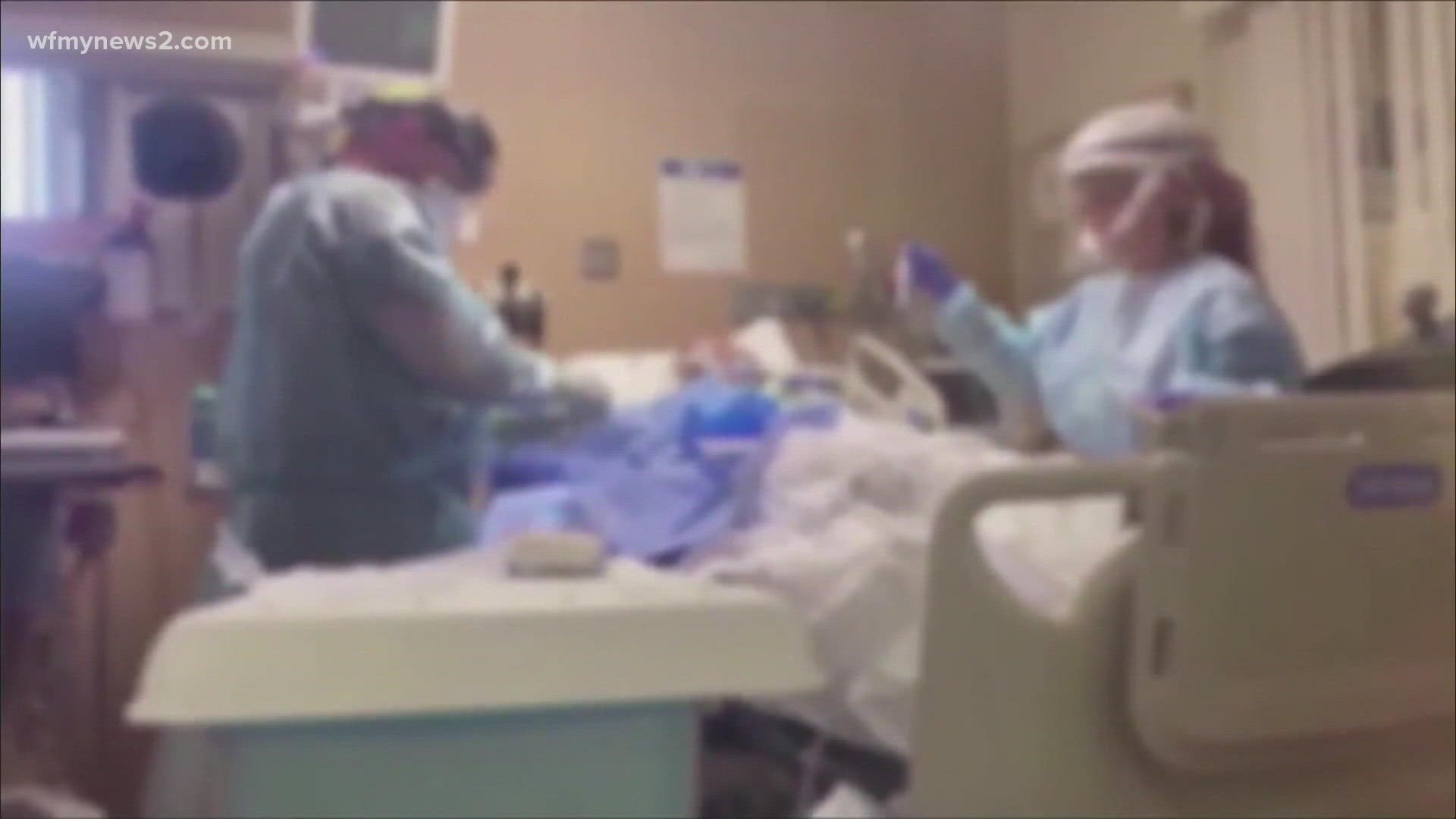RALEIGH, N.C. — North Carolina enters a new chapter of the COVID-19 pandemic, as cases and hospitalizations continue to decline.
"We enter the next phase - one of personal responsibility," Gov. Roy Cooper said during a COVID-19 task force briefing on Thursday.
To date, 75% of North Carolina adults have received at least one dose of the COVID-19 vaccine.
"Today, we can look forward with the belief that the worst is behind us," Cooper said.
Cooper and NCDHHS Secretary Cody Kinsley said the numbers are encouraging, but they do still expect to see moments of rising COVID-19 metrics, but on a more manageable level.
"The virus will still be with us, but it won't disrupt us," Cooper said.
The state reported about 800 people in hospitals with COVID-19 on Wednesday – a 300-patient drop since last week. We haven’t seen numbers that low since July 2021.
Because of the declining trends, the state has updated how it measures COVID-19's impact on North Carolina. Kinsley said state health leaders will now focus on seven metrics:
- Wastewater surveillance
- COVID-like illness
- Hospital admissions for COVID
- Case trends
- Boosters
- Prevalence of variants
- CDC community level spread
The state will no longer measure the percentage of positive tests.
The NCDHHS will also move to a weekly update on its COVID-19 online dashboard, rather than a daily update, starting March 23.
Health officials are now talking about the pandemic transitioning into an endemic; meaning, the virus is here to stay, but with the help of vaccines, we can manage it.
Dr. Chistopher Ohl outlined what that could look like in his update Thursday morning, but reiterated the fight isn't over yet.
"is the pandemic ending? It's going to slide into an endemic," he said, "The face of the pandemic is changing. The impacts of subsequent waves as they come are going to be less and the things that were going to have to do to keep it from becoming a significant problem in society will be less. We won't be thinking about it every day."
Kinsley stopped short of saying North Carolina is in an endemic, adding that "broad immunity is a key factor" in determining that.
The state of emergency will remain in place. Cooper said this is a legal tool that the state is using, in order to give flexibility wherever needed during the pandemic.
Doctors continue to study the lasting impacts of COVID-19 and how patients are affected long after their diagnosis.
Dr. Trey Bateman joined Dr. Ohl for his Thursday morning briefing. Dr. Bateman is a neurologist at Atrium Health Wake Forest Baptist.
Bateman said more information is coming out about how COVID-19 can have lasting impacts on the brain, noting that the changes are "small" but "very real."
Dr. Bateman explained a study that found a small reduction in sense of smell in the brain, a symptom many patients complain of still feeling months after they first tested positive.
In addition to the loss of taste and smell, some experience hair loss. Dr. Bateman said although doctors see patients complaining of these symptoms, it's difficult to pinpoint what the solution to improvement is.
"There's nothing that I'm aware of that's been shown at this point to help. there's no specific therapy for those things. that's one of the more frustrating parts is that when people come to us for advice, for a lot of these things were kind of stuck with we just really don't know," said Dr. Bateman.
Bateman said that doesn't mean people won't ever see improvement, adding sometimes it takes the nervous system time to catch up.
Stay connected to local, national, and breaking news: Download the WFMY News 2 app.
►Text the word APP to 336-379-5775

